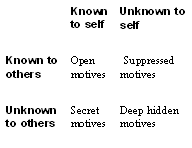
12:
Economics and the Test of FalsifiabilityDix Sandbeck
"Only hypotheses capable of clashing with observation reports are allowed to count as scientific." – Karl R. Popper
A
n important feature of modern epistemology is the demand that scientific theories be falsifiable. By this is meant that it should be possible to submit theories to falsification tests by comparing the predicted outcomes with the ones observed. Only hypotheses capable of clashing with observation can count as scientific. Thus, there can be two reasons why a hypothesis must be discarded as false. One is its failure when tested against observations. For instance, a hypothesis about a flock of swans claiming they are all red, will be false if an observation shows that they are, in fact, all white. This, of course, is a long-standing methodology of science.But, according to Popper, a hypothesis must also be discarded as non-scientific if it is not falsifiable, that is, capable of being tested conclusively against observations. This is the case if a hypothesis is couched in an open-ended language that, no matter how many false observation reports one gets, the hypothesis cannot be gotten rid of. "Some swans are red" is unscientific because even if all known observations came back with the result "false," the person questioning the hypothesis can never be sure to have seen all swans. And that will give its defender room to claim that there might be some red swans somewhere that were missed.
In a more general sense, we can say that all hypotheses based on absolute claims will, by the very nature of absolute statements, always be open-ended. Because of this, they are not falsifiable and they must therefore be relegated to the realm of non-science. Many of the totalitarian ideologies that were sweeping Europe in the 1930s and 1940s, when Popper wrote his major works, were based on absolute or open-ended claims.
A similar case arises with religions. Typically, religions are based on sets of absolute claims. Such systems can play an important role in the spiritual and ethical understanding of life, where the demand for scientific form is irrelevant. However, when absolute religious claims are used to justify wider social and political purposes, they move into a realm where their accessibility to falsification tests must be considered.
Turning to modern neo-classical economics, we can say it consists of a set of claims and hypotheses about the relations within modern industrial societies. However, seen in a Popperian light, a major part of the hypotheses underpinning the neoclassical framework either fail falsification tests, or are not falsifiable.
One such is the theory of consumer choice that assumes that rational economic agents possessing complete and perfect information will make choices that best serve their self-interest. It is not hard to find a multitude of data that contradicts this: examples of people knowingly rejecting choices in their self-interest to reach or serve a more important personal or social goal. Such examples are reinforced by behavioural psychology that tells us that people in general have varying degrees of irrational elements in their behaviour. In management sciences, as taught in all business schools, this is shown in simplified form in the Johari window:

The Johari Window. The fact is that entrepreneurial activity is to a high degree driven precisely by the circumstance that much information related to economic activity is exclusive and not available either to the general public or to their main competitors.
Finally, from the Popperian angle, the assumption of complete and perfect information is an open-ended claim since we can never pin down what complete and perfect information is.
A similar situation exists with the other central claim of neo-classic economics about the existence of perfect competition. The widespread existence of monopolistic and oligopolistic competition has forced the neo-classical theorists to modify this pretension. Instead it has been altered to the assumption that all markets are constantly trending towards perfect competition. This credo is clearly not falsifiable and is therefore, non-science.
This puts the claim into the open-ended, non-falsifiable category, parallel to the claim about the red swans. The neo-classical defenders can always postulate: Well, just wait long enough, it will eventually materialize, somewhere, some day.
Dix Sandbeck
— from COMER, April 2003